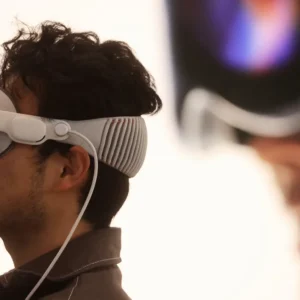‘Digital Twins’ Could Accelerate Drug Discovery and Medical Device Testing
Digital twin technology, powered by artificial intelligence (AI), is revolutionizing medical research by offering a more efficient, cost-effective, and inclusive method for testing medical devices and drugs. This technology involves creating computer-generated models of human organs, such as hearts, to simulate how medical devices will perform in different patient populations.
Adsilico, a company specializing in AI-driven digital twins, has created multiple virtual hearts that reflect various attributes such as age, weight, gender, blood pressure, health conditions, and even ethnic backgrounds. These synthetic hearts help medical device manufacturers conduct trials on diverse patient populations, ensuring more accurate and safer devices. This approach addresses the lack of representation in traditional clinical trials, which have historically focused on white male participants.
By using digital twins for device testing, companies can simulate numerous scenarios, such as different blood pressures or disease progressions, to better understand how a device will perform in real-world conditions. This reduces the need for costly human or animal trials and offers more detailed insights into device safety and effectiveness.
Sanofi, a major drug manufacturer, is also using digital twins to improve clinical trials. By creating AI-based simulated patients and AI models of drugs, Sanofi can predict how a drug will react in the body, reducing the time and cost of drug testing. This technology has the potential to increase success rates in clinical trials, saving significant money in late-stage development.
Despite the promise of digital twins, challenges remain. The accuracy of these models depends on the quality of the data used to train the AI, which has historically underrepresented marginalized populations. Companies like Sanofi are addressing this by sourcing additional data from third parties, such as electronic health records and biobanks.
Digital twin technology could eventually replace animal testing in clinical trials, providing a more humane and efficient approach to medical research. As AI continues to advance, the future of drug discovery and medical device testing looks poised for major transformation.














